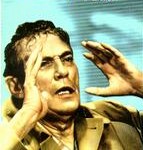When a Justice Department official asked eight U.S. attorneys for their resignations last December, most of them went quietly (initially at least), agreeing to resign on relatively short notice and with no public fuss. But one U.S. attorney, Carol Lam in San Diego, had contentious private exchanges with Department officials about her end date.
An email released to Congress last week shows just how heated those discussions got. When Lam delayed announcing her date of resignation — wanting more time to tend to several high profile cases, the expanded Duke Cunningham investigation among them –, Justice Department officials prepared to have the president fire her immediately.
The email was amongst those (pdf) released by the Justice Department to Congress last week. Writing to William Kelley, an attorney in the White House counsel’s office, Kyle Sampson, Alberto Gonzales‘ former chief of staff and the orchestrator of the U.S. attorney firings, wrote:
| FYI – our USA in SD is refusing to resign (though we’ve given her until 5pm eastern); recommendation that she be removed immediately should be over to you by the end of the day. |
The January 16th email was written just as the U.S. attorney firings controversy was beginning to simmer. On January 12th, The San Diego Union-Tribune first reported Lam’s firing. The next day, the paper quoted the head of the San Diego FBI office as saying "I guarantee politics is involved” in Lam’s firing. And on January 16th, Sen. Dianne Feinstein (D-CA) made her way to the Senate floor to announce her concern and suspicion about the U.S. attorney firings (which had just become public).
If Lam had not announced her resignation that day, apparently, the Justice Department would have moved to have her fired — something that can only occur by presidential order. Lam, however, gave in and announced on January 16th that she would be stepping down February 15th.
The announcement followed a number of apparently acrimonious discussions Lam had with Michael Elston, the chief of staff to the deputy attorney general. As Lam detailed in written testimony to Congress, Elston had warned Lam since early January that her requests for more time based on "case-related considerations" was "’not being received positively’" at the Department. He told Lam to “stop thinking in terms of the cases in the office," that she had to depart in "a matter of weeks, not months," and that "these instructions were ‘coming from the very highest levels of the government.’"
The email released last week shows just how close the "highest levels of the government" came to firing Lam when she insisted on an "orderly transition" (her words) for pending investigations.
When I read this post on TPM Muckraker, I was surprised. I’d missed it when I read through these emails. There it is in black and white. The call from the DoJ to the White House to fire Carol Lam on the spot if she wouldn’t go peacefully immediately. Something about that doesn’t sound right to me. So I went back and looked at the email traffic from that day – January 16th, 2007. Here the emails are [arranged top to bottom to make them easier to read]. It seems that Senator Dianne Feinstein talking about the firings on the Senate floor that morning got their undivided attention at the DoJ:
|
From: Seidel, Rebecca
Sent: Tuesday, January 16,2007 1:06 PM
To: Sampson, Kyle; Goodling, Monica
Cc: Moschella, William; Hertling, Richard; Tmcci, Robert N
Subject: FW: feinstein on the floor (USA issue)
Importance: High
see below
–
From:Hayden, Cindy
Sent: Tuesday, January 16,2007 1:04 PM
To: Seidel, Rebecca
Subject: feinstein on the floor
Feinstein on the floor talking about the forcing out of 7 US attorneys. Do you guys have rebuttal explanation for the situation?
|
|
From: Sampson, Kyle
Sent: Tuesday, January 16,2007 1:57 PM
To: Kelley, William K,
Subject: FW: feinstein on the floor (USA issue)
Importance: High
Bill, the media and Senate Dems are alleging that we are forcing USAs out for inappropriate political reasons (Feinstein said words to that effect on the Senate floor this morningl) – not for their incompetence. I really think that our letter should include the (oblique) language about some USAs sometimes being "removed, or asked or encouraged to resign" because of "substandard performance" and/or "failure to implement effectively the Department’s priorities." This is the high road. We don’t finger anyone specifically (and never will). FYI – our USA in SD is refusing to resign (though we’ve given her until 5pm eastern); recommendation that she be removed immediately should be over to you by the end of the day.
|
Kyle Sampson’s immediate response was to directly imply that the firings were performance related [which he, interestingly, calls the "high road"]. At this point, he seems to be under the impression that the White House is in the game and will fire Carol Lam if she doesn’t go along with their program.
|
From: Kelley, William ,K .
Sent: Tuesday, January 16,2007 1:58 PM
To: Miers, Harriet
Subject: Feinstein is on the floor (USA issue)
Importance: High
see below. DOJ is pushing back a bit
|
So William Kelley writes Harriet Miers and says the DoJ is pushing back [wanting some back up].
|
From: Miers, Harriet
Sent: Tuesday, January 16,2007 2:31 PM
To: Kelley, William K.
Subject: RE: feinstein on the floor (USA issue)
I am quite surprised that we would engage on whether a personnel action on a Presidential appointment is justified for the reasons I have earlier stated. We can see what the Chief thinks.
|
Reckon she went upstairs and talked to the Chief[s]?
|
From: Kelley, William. K.
Sent: Tuesday, January 16,- 2007 2:38 PM
To:Miers, Harriet
Subject: RE: feinstein on the floor (USA issue)
Do you want me to raise this with Joel?
|
|
From: Miers, Harriet
Sent Tuesday, January 16, 2007 2:48 PM
To.: Kelley, William K.
Subject: RE: feinstein on the floor (USA issue)
I would really like to hear one precedent where we have been willing to discuss negatives about a person that is comparable to this situation. The individuals aren’t saying anything public. Senators are. Then we are going to go out and say negative things about the people?
|
Sounds like Harriet isn’t too interested in taking any kind of action at all, leaving Kyle et al high and dry. Imagine that. Kelley delivers the news…
|
From: Kelley, William K.
Sent: Tuesday; January 16,2007 2:50 PM
To: Sampson, Kyle
Subject: RE: feinstein on the floor (USA issue)
FYI – maybe we can consider briefing the interested Senators in private without going negative in public?
|
|
From: Sampson. Kyle
Sent: Tuesday, January 16,2007 3:29 PM’
To: Kelley, William K.’
Subject: RE: feinstein on the floor (USA-issue)
Hertling and I briefed Bruce Cohen and Jennifer Duck on Friday for over an hour, we were pretty forthcoming with them regarding Lam (SD) and Ryan (SF)
|
Already tried that one. It didn’t fly.
|
From: Johnson, Kevin [mailto:kjohnson@usatoday.com]
Sent: Tuesday, January 16,2007 5:12 PM
To: Roehrkasse, Brian
Subject: feinstein
FOR IMMEDIATE RELEASE:
Tuesday, January 16,2007
Senator Feinstein Concerned over Resignations of at Least Seven U.S. Attorneys Across the Country
…
|
|
From: Roehrkasse; Brian
Sent: Tuesday, January 16, 2007 5:28 PM
To: Elston, Michael (ODAG); Sampson, Kyle; Scolinos, Tasia; Go6dling, Monica
Subject: FW: feinstein
This is generating a lot of calls.
|
|
From: Sampson, Kyle
Sent: Tuesday, January 16,2007 5:30 PM
To : ‘Kelley, William K.’
Subject: . RE: feinstein ‘ ‘
Importance: High
I’m updating theletter now to reflect the two usa appts today. Lam has resigned. Can we send our response? the stronger version? Please advise.
|
The DoJ is feeling the heat. Phones are ringing. Lam apparently gives in. Sampson recontacts Kelley. He wants to give a reason for the firings – the stronger version [performance related?]. A thinly disguised plea for some help…
|
From: Kelley, William K.
Sent: Tuesday, January 16, 2007 6:41 PM ,
To: Sampson, Kyle
The view here is that it is risky, and maybe unprecedented, for us to comment on a personnel matter in a negative way. It is true, and frustrating, that Sen. Feinstein is attacking us unfairly, but the US Attorneys themselves haven’t fired any shots. Until they do, Harriet feels very strongly that we shouldn’t respond on the merits, even though we are convinced that they have disloyally stirred up the Senators. We are all fine with saying what you want to say about filling all 94 slots.
|
No help coming. It seems to me the White House is covering its own ass here – taking no action, and leaving Kyle Sampson and the DoJ out in the cold to explain these firings – with no explanation to give. The White House said "no" to claiming that the U.S. Attorneys were fired for performance reasons, and "no" to their not following the Administration’s agenda. So, even though it was a White House operation [put on hold until the White House Legal, Political, and Communications people had signed off on it], when Feinstein brought it out in the open, Harriet Miers didn’t want to back up the DoJ. She’d already resigned two weeks previously. I doubt she wanted any more dirt on her hands. In fact, I doubt she would make any decision on her own. I smell a Bush-or-Rove influence here.
And so, from the time things became public with Feinstein’s speech on the Senate floor [January 16th, 2007] until they went to the White House the night before Moschella’s testimony in a Senate Hearing [March 6th, 2007], the DoJ limped along with various statements of what the firings didn’t mean – implying performance by not really stating it. I guess they had plans on how to handle the Senators, but it never occurred to them that the Press, the blogosphere, and the American people would get involved. They forgot about us in their planning. And they seemed to have no clue about what a Democrat Majority in Congress could or would do. So on the eve of Moschella’s testimony [March 5th, 2006], Karl Rove basically told the DoJ they were on their own. You are going to have to tell them why you fired them. Kyle Sampson resigned within the week.
So, I disagree a bit with Paul Kiel’s take on all of this [above]. I think it’s about Kyle Sampson’s mistaken impression that the Administration would back him up, or that Alberto Gonzales would back him up. Like Scooter Libby, he was out there on his own, but he didn’t know it. When he said, "…our USA in SD is refusing to resign (though we’ve given her until 5pm eastern); recommendation that she be removed immediately should be over to you by the end of the day," I think he thought they’d fire her, but I don’t. If Bush did fire her, he’d have to say why, and admit to the White House involvement.
There’s a saying, "honor among thieves." I don’t think Bush, Cheney, or Rove do "honor." Lord knows, I’m not trying to work up any sympathy here for Kyle Sampson or Scooter Libby. They’ve made their own beds. But what I am saying is that "… email released last week shows just how close the ‘highest levels of the government’ came to firing Lam" might be what Kyle Sampson thought, or expected, or wanted, but it doesn’t take the character of our leaders into account. Like most bullies, they talk a good game, but when the going gets tough, they cover their own asses and let their front men take the hits. In my youth, such people were called chickens…
Why does Bradley Schlozman still have a job at the Justice Department? Why are taxpayers still funding his professional career despite a growing body of evidence that suggests he has brought nothing but shame and scandal and rank partisanship to the department? And if Attorney General Alberto R. Gonzales can’t bring himself to demand Schlozman’s resignation, can he at least question his judgment?








 New evidence unearthed by House Democrats establishes that White House political adviser Karl Rove and many of his colleagues used Republican National Committee e-mail accounts for official business — even though White House policy is clear that doing so is a violation of the Presidential Records Act.
New evidence unearthed by House Democrats establishes that White House political adviser Karl Rove and many of his colleagues used Republican National Committee e-mail accounts for official business — even though White House policy is clear that doing so is a violation of the Presidential Records Act.
 Signing Statements
Signing Statements The revelation that investigators had found six laws that were disobeyed within the small sample prompted angry words from the other lawmaker who commissioned the GAO study, Senate Appropriations Committee chairman Robert Byrd , Democrat of West Virginia. He called Bush’s signing statements a "power grab" that undermined Congress’s authority to write the laws.
The revelation that investigators had found six laws that were disobeyed within the small sample prompted angry words from the other lawmaker who commissioned the GAO study, Senate Appropriations Committee chairman Robert Byrd , Democrat of West Virginia. He called Bush’s signing statements a "power grab" that undermined Congress’s authority to write the laws.